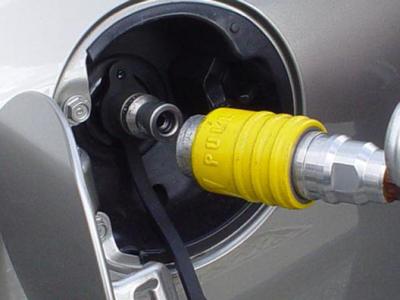It's Time to Bet on Natural Gas
WELLESLEY, Mass., April 12, 2016 -- According to Joe Petrowski, Founder of Mercantor Partners, at its peak, the United States was producing almost 100 billion cubic feet of natural gas per day (bcf/day) - the equivalent of 1 billion barrels of oil. There were a number of factors that finally reduced the price of U.S. oil, but contrary to popular belief they weren't simply the great recession and the Saudi Arabia-Iran market share tussle. Fracking, and the immense stockpile of natural gas the United State has accumulated as a result, was a huge contributing factor. The actual proper ratio of natural gas to crude is as highly debated as gold to silver, largely because natural gas is quoted in dollars per million cubic feet while oil is quoted in barrels. But regardless of the exact ratio it is obvious that natural gas contributed to crude's collapse, and as such it is time to bet on natural gas as it is perfectly positioned to take a bigger slice of the market.
Natural gas enjoys an environmental advantage over crude, while crude has the edge when it comes to storage and transportation. However natural gas is eating in to crude's key advantages, which will have significant implications for both the petroleum and the natural gas market.
"Natural gas is beginning to fight for the transportation market," said Joe Petrowski, Founder of Mercantor Partners, and former CEO of Gulf Oil LP. "It's already significant in Class 6 to Class 8 heavy duty trucks, with many large shipping organizations converting their fleets. And we should soon see natural gas start breaking in to light duty vehicles, and ultimately small commercial and even residential vehicles."
The United States currently has about 240 million vehicles with an abnormally high average life span of nearly 11 years. This makes the market ripe for new production, and much of that will be natural gas based. China will likely follow soon, with 20 million vehicles at an even more advanced age. Current demand is approximately one bcf/day, but by 2020 the market could easily grow to five or even 10 bcf/day.
There is also a new natural gas market developing – exports. Mexico is already importing five billion cubic feet per day from the United States, and that will likely double in the next four years.
"Natural gas export facilities and pipelines are naturally being delayed by the usual factors (environmentalists and anti oil lobbyists), but the capacity for as much as 20 billion cubic feet per day already exists," continued Mr. Petrowski. "And despite the typical road blocks, new facilities will eventually get built, increasing U.S. power and influence and eliminating our trade imbalance. When one considers these two factors, it's clear we can expect a significant turnaround in gas prices, equity, and asset value."
Power demand and power supply are going in opposite directions. We continue to decommission coal and nuclear plants all while demand surges due to the proliferation of data centers and flat screen TV's. Power demand has dipped (13 bcf/day) recently due in large part to a warm winter, but it should pick back up as new home building strengthens, conversions from petroleum continue, and local distribution systems are upgraded."
U.S. natural gas production is robust at 73 bcf/day, but will drop into the high 60s by the fourth quarter this year due to a comparatively low rig count (464). However, the prospect of brownouts, blackouts, and a power price of 25 cents per kilowatt hour will be enough to win over even the most staunch opposition to natural gas.
Soon demand will outstrip supply by as much a 10 bcf/day, making the 5.7 trillion cubic feet stock number of November, 2015 move closer to 5.0 by November 1, 2016. This will certainly keep natural gas prices from collapsing, and it will likely hover closer to $4 per million BTU than $2 per million BTU..
"This is good for energy prices, good for the United States, and good for equity valuations," concluded Mr. Petrowski. "We should soon start to see natural gas fill the gap between demand and supply. And while the race doesn't always go to the fleet, and battle doesn't always go to the strong, that's always how you bet. Bet on natural gas, energy, and the United States."
About Joseph "Joe" H. Petrowski
Joe
Petrowski is the founder and managing partner of Mercantor Partners,
an investment firm and management team headquartered in Massachusetts, working to undertake investments
in downstream energy. He is a member of the Board of South Jersey
Industries, a publicly traded natural gas utility and national energy
merchant. He also serves as a Board member for Claremont McKenna College, Boston College High School, Trinity Catholic and is on the advisory council of
the Boston Federal Reserve. Prior to forming Mercantor Partners, Joe Petrowski was CEO and served as a member of
the Board for Gulf Oil L.P. and Cumberland Farms from 2005 through 2013.
During his time as CEO, the company achieved record earnings. He is a Cum
Laude graduate of Harvard College.



